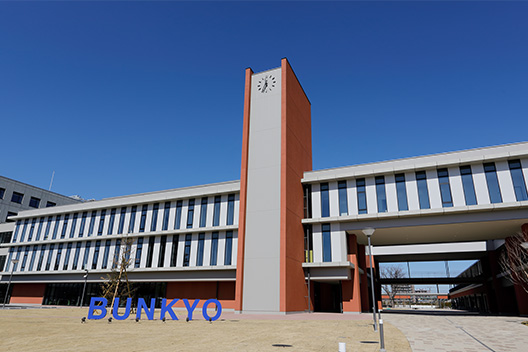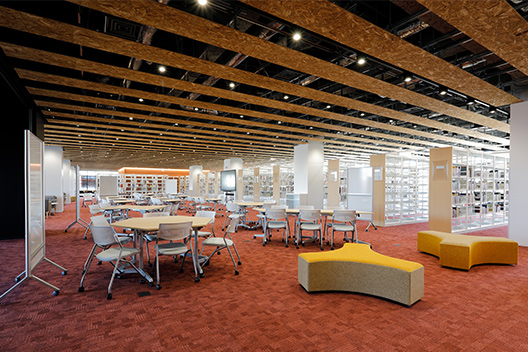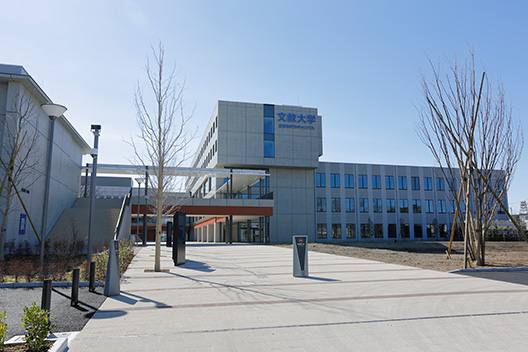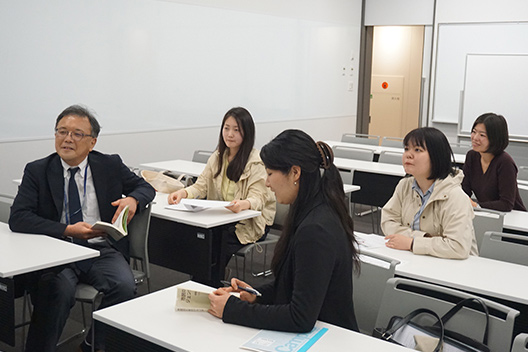Features of the Graduate School of International Studies
Overview
For the Graduate School of International Studies, Bunkyo University, "International Cooperation" means not support or aid in the narrow sense, but a basic mindset for developing and managing a better civil society in this day and age of globalization beyond national and regional boundaries. This graduate school is an institution of small-group advanced education whose full quota is 10 students (5 students per year). Professors from various areas of specialization and students with a wide variety of academic backgrounds are approaching the "Study of International Cooperation" from three perspectives: Development Studies, Studies for Civil Society and Community Design, and Tourism Studies. Graduates from this school choose their career paths not only in the fields that are directly related to international cooperation such as specialized agencies and NGOs for international cooperation. They also choose private businesses that are earnest about globalization, CSR or environmental issues, and public agencies or extra-governmental organizations for administration, education, welfare, and more, making full use of the knowledge and experience gained through the specialized education and the process of writing a thesis.
Message from the Graduate School of International Studies
To become talented professionals that can contribute to society as global citizens
What is the renewed "Graduate School of International Studies"?
In 2015, the Graduate School of International Cooperation Studies was renewed to form the International Studies Course, Graduate School of International Studies.
In the world of the 21st century, exchange of people, materials, money and information across borders is increasing at an accelerated pace, and in this context people living on earth are becoming more interdependent on each other. This means that not only the economy but also every other aspect, including customs and cultures of countries or regions and human relationships, is beginning to be influenced by world trends. Our society is beginning to experience the effects of conflicts, terrorism, climate change, infection and even social events occurring in other areas of the world. For coping with those matters, people of the world, as well as nations, are required to recognize them as their own and cooperate with each other on equal footing. Thus our new graduate school has newly adopted three areas: Development Studies, Studies for Civil Society and Community Design, and Tourism Studies, aiming at the development of "global citizens" who can "think globally and act locally" through personalized human development.
Three areas of studies

Development Studies aims at studying how international cooperation, which tends to be rather thought of as extrinsic support from advanced countries to developing countries, should be utilized for development in a broad sense. It provides opportunities for study and education by developing professionals of international cooperation or experts who are interested in operations related to international exchange in private sectors. Studies for Civil Society and Community Design aims at grasping the changing communal society of Japan from a viewpoint of global citizens, targeting civil society, governance and regional design as themes for study. This area is for developing local government officials who need higher competence in policy planning and professionals such as community planners and NPO directors. Tourism Studies focuses on themes such as diversification in outbound tourism including personalization and specialization, tour management and service operations for meeting the quantitative expansion of inbound tourism, regional landscape, culture, dramatic presentation of exchange with people in daily life, and more, in the context that globalization has a quantitative and qualitative effect on tourism. This graduate school offers opportunities for developing more professionally expert providers of tourism.
Now join us in contributing to society as global citizens with a wide perspective and high expertise by living a fruitful campus life through friendly competition with classmates in an environment with close relationship between teachers and students provided by small-group instruction.
Career Paths after Graduation
There are three career paths after graduating from this school.
The first path
The first path is into the field of international cooperation. Some graduates are engaged in assistance to developing countries as expert investigators for the Ministry of Foreign Affairs.
The second path
The second path is into a professional job found domestically. Graduates have entered government service in the fields of welfare, administration, education, and more, and global companies working in the fields of environment, tourism development, healthcare, and more. Expert knowledge gained in this graduate school is made use of in all these cases.
The third path
The third path is where foreign students obtain a job in their own countries or Japan, capitalizing on the subjects of their master's theses. It is also possible to utilize this program to deepen their studies in order to enter the doctoral courses of other graduate schools.











